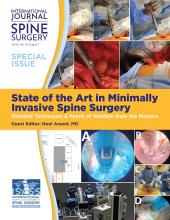ABSTRACT
Background Currently, few studies have examined whether patients with back or leg pain-predominant symptoms fare better clinically after lumbar spine surgery; therefore, the purpose of this study was to determine whether patients with back pain-dominant symptoms improved to a similar degree as patients with mixed or leg pain-dominant symptoms after lumbar surgery.
Methods A retrospective cohort study was conducted at a single academic center, in which patients were stratified into three groups: (1) back pain-dominant group (B) (visual analog score [VAS] back – VAS leg ≥ 1.0 point), (2) neutral group (N) (VAS back – VAS leg < 1.0 point), or (3) leg pain-dominant group (L) (VAS leg – VAS back ≥ 1.0 point), using a VAS threshold difference of 1.0 point. As a secondary analysis, the VAS leg-to-back pain (LBR) ratio was used to further stratify patients: (1) nonleg pain-dominant (NLPD) group (LBR ≤ 1.0) or (2) leg pain-dominant (LPD) group (LBR > 1.0). Patient outcomes, including physical component score of the short form-12 survey (PCS-12), mental component score of the short form-12 survey (MCS-12), and Oswestry Disability Index (ODI), were identified and compared between groups using univariate and multivariate analysis.
Results There were no significant differences in preoperative, postoperative, or delta scores for PCS-12 or ODI scores between groups. In patients undergoing decompression surgery, those with back pain-dominant or mixed symptoms (B, N, or NLPD groups) did not improve with respect to MCS-12 scores after surgery (P > .05), and those with leg pain-dominant symptoms (LPD group) had greater delta MCS-12 scores (P = .046) and greater recovery rates (P = .035). Multiple linear regression did not find LPD to be an independent predictor of PCS-12 or ODI scores.
Conclusion Patients undergoing lumbar decompression surgery and leg pain-dominant symptoms noted a greater improvement in MCS-12 scores; however, there were no differences in PCS-12 or ODI scores.
Level of Evidence III.
Clinical Relevance Patients undergoing lumbar decompression surgery demonstrate no major clinically significant differences when split up by pain-dominance groups.
- patient-reported outcome measurements (PROMs)
- physical component score of the short form-12 (PCS-12)
- mental component score of the short form-12 (MCS-12)
- Oswestry Disability Index (ODI)
- visual analog scale back pain (VAS back)
- visual analog scale leg pain (VAS leg)
- VAS pain dominance
- lumbar surgery
Footnotes
Disclosures and COI: The authors, their immediate family, and any research foundation with which they are affiliated did not receive any financial payments or other benefits from any commercial entity related to the subject of this article. There are no relevant disclosures.
- This manuscript is generously published free of charge by ISASS, the International Society for the Advancement of Spine Surgery. Copyright © 2021 ISASS







